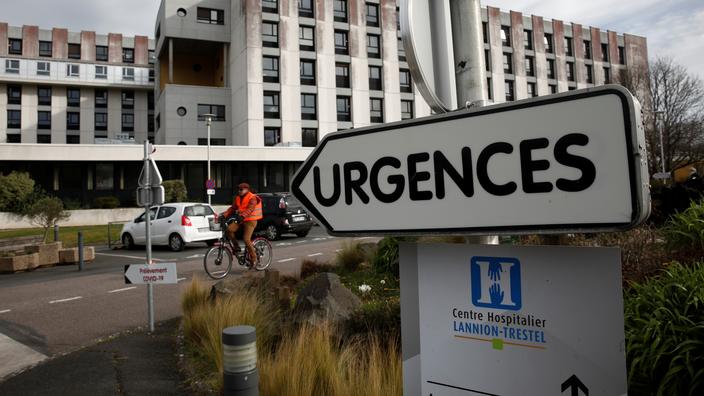The media lightning had fallen, mid-March, on the small town Lannion (Côtes-d'Armor).
Eight cases of a new variant of Covid-19, B.1.616, were discovered in a cluster within the local hospital.
The strain, trivially called the “Breton variant”, worried scientists because of its atypical profile.
The Institut Pasteur noted “
nine mutations
” and warned of a risk of “
underdiagnosis
”: it seemed undetectable by PCR tests.
To discover
Covid-19: instructions for use of self-tests
Test, isolation: the procedure to follow in the event of a suspicion of Covid-19
Radio silence since.
The mutant was no longer really talked about, until Santé Publique France communicated on the subject.
The transmission would be under control.
As of April 28, 40 infections with this B.1.616 strain have been identified: 37 in Brittany and three in other regions.
Almost all of them are directly or indirectly linked with the Lannion hospital cluster.
Read also: Covid-19: in Lannion, "no psychosis" in the face of the Breton variant
The Breton variant still plays hide and seek.
In all, it was only detected in 13% of cases by a conventional PCR test.
To confuse it with certainty, in case of suspicion, it is necessary to conduct a “deep” sample in the lower airways, through the throat.
"
The disaster scenario is that it is still moving forward masked,
" says Pascal Crépey, epidemiologist at the School of Advanced Studies in Public Health in Rennes.
It could resurface and create new clusters.
"
That would jeopardize the entire screening strategy,"
continues the scientist.
Unresolved questions
The second possibility, the one that seems to be emerging, is that the Breton strain is disappearing. It would ultimately be less transmissible because the virus would stay less long in the upper airways (nose, mouth, Editor's note). "
People with the disease seem to be contagious for less time
," summarizes the Breton researcher.
If the variant had continued to develop, chains of transmission would have been created, we would have had people hospitalized, showing symptoms of Covid but with a negative PCR test. Obviously this is not the case
”
.
Pascal Crépey wants to remain cautious
:
"This
is not why this strain does not circulate elsewhere than in Brittany, even perhaps in other countries",
he warns. There are also outstanding questions. If it spreads less easily, and there is little time left in the nose, what is the mode of contamination? How could he be at the origin of a cluster in Lannion? The Breton variant has not revealed all its secrets.









